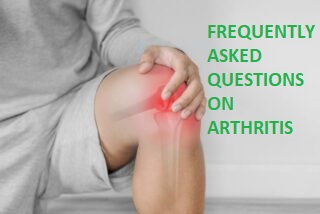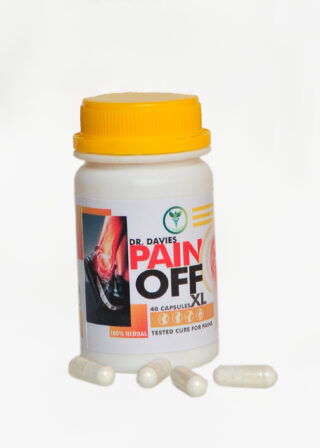FREQUENTLY ASKED QUESTIONS ON ARTHRITIS

1 Does cold cause arthritis?
There is a common belief that cold weather can cause arthritis or worsen its symptoms. However, scientific research has not been able to establish a clear causal link between cold weather and the development of arthritis. Arthritis refers to a group of conditions characterized by inflammation of the joints, such as osteoarthritis and rheumatoid arthritis.
While many people with arthritis report increased joint pain and stiffness during colder months, the exact reasons for this association are not fully understood. Some theories suggest that changes in barometric pressure, which often occur during weather changes, may affect joint tissues. Additionally, cold weather may lead to reduced physical activity or changes in blood circulation, which can contribute to joint discomfort.
It’s important to note that not everyone with arthritis experiences worsened symptoms in cold weather, and there are various factors that can influence the severity of symptoms, such as overall health, age, and disease progression. Managing arthritis typically involves a combination of medication, physical therapy, exercise, and lifestyle modifications, regardless of the weather.
2.Which natural remedy can I use to cure arthritis or alleviate the pain?
In the field of orthodox medicine, it is believed that there’s no known cure for arthritis, however, there are several natural remedies and lifestyle changes that can help alleviate pain, reduce inflammation, and improve joint mobility. It’s important to note that the effectiveness of these remedies may vary from person to person, and it’s always a good idea to consult with a professional before starting any new treatment. Here are some natural remedies that have been helpful in this respect:
i. Exercise: Regular physical activity can help strengthen the muscles around the joints, improve flexibility, and reduce pain. Low-impact exercises such as swimming, cycling, and walking are often recommended for people with arthritis.
ii. Weight management: Maintaining a healthy weight can help reduce stress on the joints, particularly in weight-bearing joints such as the knees and hips. Losing excess weight can help alleviate pain and slow down the progression of arthritis.
iii. Hot and cold therapy: Applying heat to the affected joints using heating pads, warm towels, or hot packs can help relax muscles and reduce pain. Cold therapy, such as ice packs or cold compresses, can help reduce inflammation and swelling. Alternate between hot and cold treatments for best results.
iv. Herbal remedies: Some herbs and supplements have shown potential in reducing arthritis symptoms. Examples include turmeric, ginger, green tea, and some fish oil. However, it’s important to note that blood type specifications play an important role in the selection of herbs and food to alleviate arthritis. For instance, Cucumber may promote alleviation of arthritis in blood group A but may worsen it in blood group O.
That’s why we took time to take all of these into consideration in the formulation of our PainOff XL Capsule.
v. Diet modifications: Certain foods may have anti-inflammatory properties and can help reduce arthritis symptoms. A diet rich in fruits, vegetables, whole grains, lean proteins, and healthy fats such as omega-3 fatty acids may be beneficial. Some people with arthritis also find that avoiding or reducing consumption of certain foods, such as processed foods, red meat, and foods high in sugar, can help alleviate symptoms.
vi. Stress management: Stress can worsen arthritis symptoms. Engaging in relaxation techniques such as deep breathing, or yoga can help reduce stress and promote overall well-being.
3. At what age am I prone to having arthritis?
Arthritis can affect people of all ages, but it is more commonly associated with older individuals. The risk of developing arthritis generally increases with age. The most common type of arthritis, known as osteoarthritis, typically occurs later in life and is often related to the wear and tear on the joints over time.
However, it’s important to note that arthritis can also affect younger individuals. Certain forms of arthritis, such as rheumatoid arthritis, juvenile idiopathic arthritis, and psoriatic arthritis, can develop in children, adolescents, or young adults.
Additionally, factors such as genetics, previous joint injuries, obesity, and certain occupations or activities that place repetitive stress on the joints can also contribute to the development of arthritis at a younger age.
If you have concerns about arthritis or any joint-related symptoms, it’s best to consult with a healthcare professional, especially a Naturopathic Physician who can provide a proper diagnosis and recommend appropriate treatment options.
4. Can arthritis medication cause liver damage?
Yes, certain medications used to treat arthritis, particularly nonsteroidal anti-inflammatory drugs (NSAIDs) and disease-modifying antirheumatic drugs (DMARDs), can potentially affect the liver. This is why it’s important to use these medications under the guidance and supervision of a healthcare professional who can monitor your liver function and adjust your treatment as needed.
NSAIDs, such as ibuprofen and naproxen, are commonly used to relieve pain and reduce inflammation in arthritis. While they are potentially safe when used for short durations, long-term or high-dose use of NSAIDs can increase the risk of liver damage.
Also, DMARDs, such as methotrexate, leflunomide, and sulfasalazine, are prescribed for certain types of inflammatory arthritis. These medications can potentially cause liver function abnormalities. That is why Periodic blood tests are typically performed to monitor liver enzyme levels while taking DMARDs.
In addition to NSAIDs and DMARDs, other medications used to manage arthritis, such as corticosteroids and certain biologic agents, may also carry a risk of liver-related side effects.
If you have concerns about the potential harmful effects of arthritis medications on your liver, it’s important to hearken to the advice of WHO by seeking natural solutions which is known to be safer.
5. I suddenly developed crooked fingers, is that a symptom of Arthritis?
The development of crooked fingers can be associated with certain types of arthritis, particularly inflammatory forms of arthritis like rheumatoid arthritis. In rheumatoid arthritis, the joints can become swollen, inflamed, and progressively damaged over time. This can lead to deformities in the affected joints, including the fingers.
Crooked fingers in rheumatoid arthritis often result from joint erosion and the weakening of ligaments and tendons that support the joints. As the disease progresses, the fingers may deviate sideways or become bent, resulting in a crooked appearance. Other symptoms of rheumatoid arthritis may include joint pain, stiffness, swelling, and fatigue.
It is important to note that crooked fingers are not exclusive to rheumatoid arthritis. Other types of arthritis, such as osteoarthritis or psoriatic arthritis, can also cause joint deformities and crooked fingers, although they may present differently.


